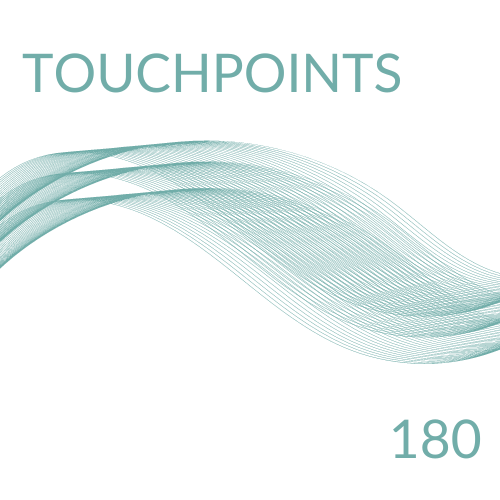
Ben sat sipping his coffee. He set it down on the lamp table and relaxed, then his hand trembled wildly and knocked the mug, spilling coffee all over the table and chair. Groan. His tremors were getting worse. He got up to get a towel, and wobbled a bit. Then as he stepped toward the kitchen his head was swimming… and before he knew it he had sunk to his knees. Slowly, he crawled to the sofa, and used it to climb up and sit. I’m just not doing well, he thought to himself. He felt discouraged. Listless. Could he be depressed? He was tired, and remembered he’d had a fitful night. Why couldn’t he wake up rested? He realized that maybe it’s time to face all this. He would soon learn that a ketogenic diet can kick Parkinson’s to the curb. But it all started with a first step.
His doctor encouraged him to see a neurologist, and gave him a name, so he called for an appointment.
Starting with a Specialist

He liked the neurologist. He seemed engaged and caring. After evaluating him, the doctor gave him a diagnosis of early Parkinson’s disease. And he encouraged him that there are things he can do. That he can alter the course of the disease by getting actively involved in the process.
He explained the importance of exercise to stimulate dopamine, which needs to be generated to replace the dopamine loss that’s at the core of the disease. Then, he gave him a brochure about a group of Parkinson’s patients who get together for boxing to help with coordination, muscle tone, and exercise. He told him that would help, and would give him camaraderie, too.
He also arranged for physical therapy to work on his walking gait, and posture. And occupational therapy to develop his swallowing muscles.

He then handed him a leaflet about a program a local psychiatrist offered. Touchpoints 180™ it read. He told him he had patients who were using this kind of approach very successfully. Using real food in the right proportions, personalized for him, Ben’s body would enter a state of ketosis, where his own body would produce the ketones he needed. Ketones are produced in the process of breaking down fat. These ketones are an outstanding source of energy for the brain.
The brain can use two forms of energy: glucose or ketones. But ketones provide far more energy per unit and equip the brain to do more of what it needs to do. To function, as well as to repair itself. This process enhances mitochondrial function as well as producing more mitochondria, multiplying its energy supply.
The important aspect of this treatment is a personalized ketogenic diet nutritionally appropriate for him, and designed to maximize his brain energy and functioning. It is a diet high in fat, with a moderate amount of protein and very low carbohydrates so the brain wouldn’t switch back and forth between energy supplies. This would help him maintain that state of ketosis, so he’d continue producing those ketones.

The doctor explained that a nutritionally sound ketogenic diet can kick Parkinson’s to the curb.
The doctor encouraged him to make an appointment with this psychiatrist for her Touchpoints 180™ program, to get her help with his depression, his spiraling anxiety, as well as the guidance of their registered dietitian/nutritionist and her whole team. He explained that maintaining this wasn’t just about doing a diet, it was a whole treatment. Along with the rest of their program, it could help him structure his days in a way that actually treats his mood and anxiety symptoms and could put them into remission, and address some of the fundamental brain issues that go wrong in Parkinson’s.
Ben thanked him, made an appointment for 3 weeks later, and left. He was shell shocked at the diagnosis… but he’d never heard there were things you could do to affect the outcome. He felt gratitude that his family doctor had referred him to the neurologist he did. And now he needed to see this psychiatrist.
Ketogenic Metabolic Therapy for Parkinson’s
As he thought about the serious implications of the diagnosis, he kept reminding himself that the doctor said there were things you can do. He determined to learn what those things were… and do them.
The psychiatrist was able to work him in within two days, so when the time came, he took an Uber. He didn’t trust himself driving.

That was the most amazing day he’d had that he could remember. They assessed his metabolic health, designed a personalized ketogenic treatment for him—called ketogenic metabolic therapy, not “just” a keto diet—that he could manage himself, complete with real foods he could carry with him when he had to be at physical therapy or the boxing group.
Their program was all about real whole foods, not powders, shakes, or commercial keto food. It included lots of support, phone calls, question and answer sessions, and even nature walks. He could see with all this support and supervision, this approach could kick his Parkinson’s to the curb, alright.
Of course, he began immediately.
He felt like he’d been shot out of a cannon. There were activities every day, sometimes with the boxing group, other times the walks and talks with the Touchpoints 180™ group, plus sessions with the physical therapist, the psychiatrist, and the neurologist.

After a couple weeks, he found he hit a rhythm with the meals. It was a new way of thinking about food. Instead of grabbing quick crackers, pizza, or soup when he was hungry and in a hurry, he planned his food to be sure he was eating enough fat and protein to nourish his brain and accomplish the goals of nutritional therapeutic ketosis.
It kept his mind occupied, just trying to keep up and show up to everything that was expected of him. It’s a bit like boot camp – this new lifestyle, he chuckled to himself. But he felt productive, and proactive, like he was doing something to find a solution. Being so busy helped to distract him from the fear he felt initially about Parkinson’s.
After three months of this, he wondered if he was imagining it, but the tremors in his hand seemed less intense. Could it be?
Ketogenic Lifestyle Promotes Health and Restoration

He’d made some friends at the boxing group, and on the nature walks with Touchpoints 180™… so in the evenings, he would call one or another of them and they would just shoot the breeze. It was good to be getting to know new friends.
As time flew by, and he saw his neurologist regularly, his doctor agreed that his symptoms were diminishing. At first, he thought he would get dizzy or have muscle cramps, like he’d heard about — but he didn’t, and within days of letting into ketosis, his mind felt clearer. Less foggy.
After a few months, Ben was felt stronger and wasn’t losing his balance. He didn’t expect miracles, but he did try to stay tuned in to improvements. He’d made a decision. He had every intention of maintaining this lifestyle. At his age, there was nothing but benefit to him in working on fitness, emotional wellbeing, mental clarity, and burgeoning health, all the way down to his mitochondria.
A year later, Ben was maintaining his schedule, seeing friends, attending baseball games, and enjoying his ketogenic lifestyle. Touchpoints 180™ and this ketogenic diet had kicked Parkinson’s disease to the curb.

He hadn’t driven his car since he received the Parkinson’s diagnosis, but he was seriously thinking taking a few lessons at a driving school, just to brush up. He believed he’d be able to drive just fine.
Truth be told, he felt younger than he had felt before his diagnosis. Younger, more vibrant, more socially at ease, and energetic. His mood was better and he was enjoying things again. Sure, his joints creaked, and he needed to get new glasses. He was still an aging man. But the ketogenic diet had given his body vitality, in the course of the process of treating the Parkinson’s disease.
You Can Change the Course of Parkinson’s Disease
At the core of Parkinson’s, there is a place in the mid-brain, called the substantia nigra, where pigmented cells make dopamine. These cells are destroyed, and as a result, dopamine production is decreased drastically.
The critical depletion of the neurotransmitter dopamine, combined with toxic environmental factors among other aspects, result in motor symptoms, like stiffness, a shuffling gait, and tremors. But they also cause non-motor symptoms like mood disorders, fatigue, compulsive behaviors, psychosis, dementia, and sleep disorders. In addition, there can be very low blood pressure and problems with constipation.
With close monitoring, exercise, and a ketogenic diet — his psychiatrist called it ketogenic metabolic therapy — the mitochondria can benefit from a healing and restorative process that can change the course of the disease.

If you can relate to Ben, or have been diagnosed with early Parkinson’s, and want support to address your symptoms, call us.
Through our Touchpoints 180™ program, we’ll help you with what you need to change the course of this disorder, and get your life back.
We’re here to stand with you and watch your recovery unfold.

To the restoration of your best self,
